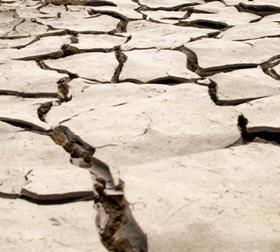
The drought in the Chilean region of Coquimbo – now entering its ninth consecutive year – is severely compromising the area’s fruit industry, according to a report from the Northern Agricultural Society (SAN). It claims that of Coquimbo’s 121,000ha of agricultural land, around 73,000ha (60 per cent) are no longer being irrigated, leaving a trail of debt and unemployment amongst the region’s farming community.
According to a report by the regional authority, the drought is the “worst water crisis to affect the region in five decades”. The brunt of the shortage is being borne by the province of Limarí, where almost three-quarters of the 71,000ha of land under agricultural production have received no water this season. In the Elqui valley, 41 per cent of the 27,000ha have not been irrigated, while in Choapa 45 per cent of agricultural land has remained dry. This has resulted in production shortfalls of 80 per cent for Limarí, 55 per cent for Choapa and 59 per cent for Elqui, the report said.
Coquimbo’s fruit production has been particularly affected. Avocado trees have had to be cut back, while other orchards are surviving on minimal water rations. The region has 53,000ha of fruit production, accounting for one-sixth of the country’s total planted area. The number of people employed in the industry has fallen from 59,000 in 2007 to 44,000 in 2014.
“This has led to widespread poverty in rural areas and an increase in migration to cities,” said Daniel Norambuena, SAN’s executive secretary.
A number of measures have been proposed to alleviate the impact of the drought, including renegotiating credit terms for farmers, creating an emergency fund for growers and relieving farmers from tax paying duties. The government is also reportedly assessing the viability of building a waterway from the south of the country.



